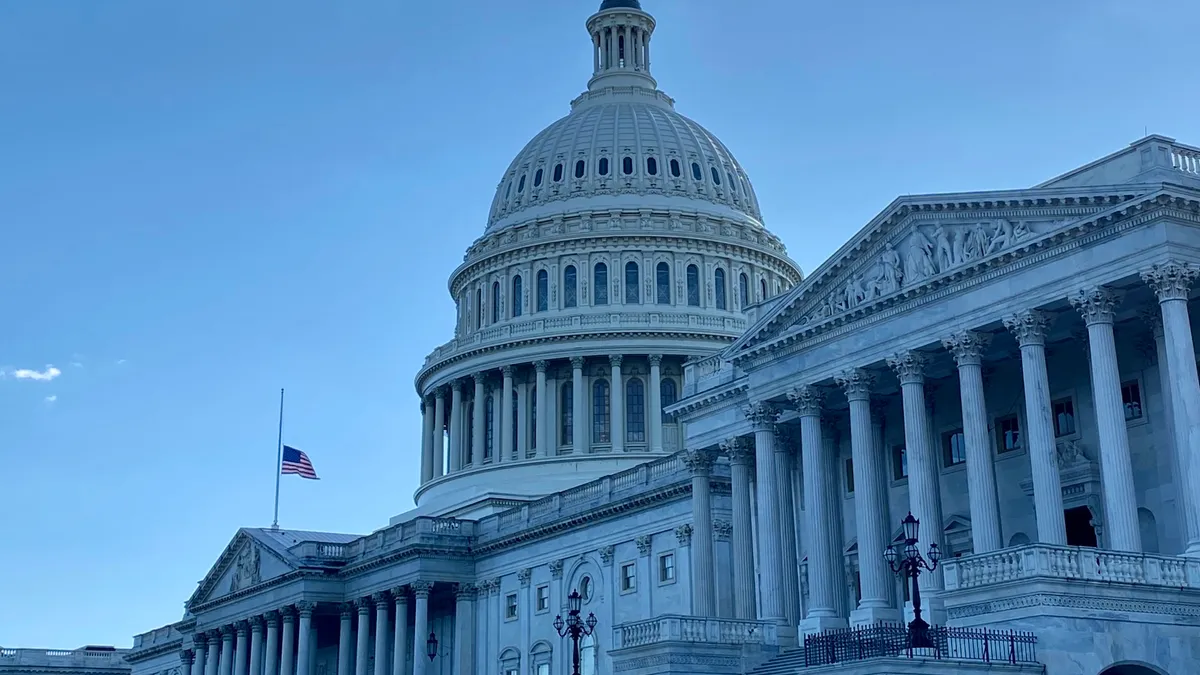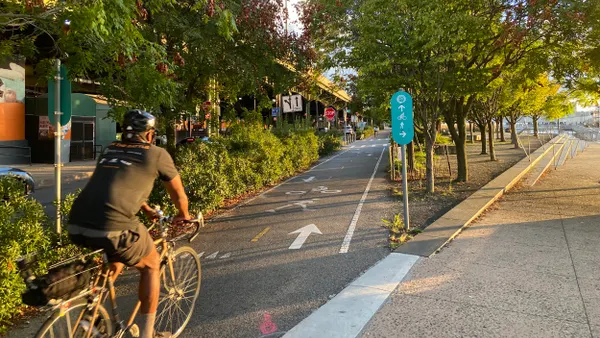With President Joe Biden expected to sign the Inflation Reduction Act this week, the legislation will mark the largest federal climate investment in U.S. history.
The bill, which the U.S. House of Representatives passed along party lines Friday, allocates $369 billion to climate and energy-related provisions. Once approved, climate and energy leaders say, local governments must play a central role in using the funds to execute on the nation’s decarbonization goals.
“Now it will be up to federal agencies, states, cities, and the private sector to make the bill’s vision a reality,” said Steven Nadel, executive director of the nonprofit research organization American Council for an Energy-Efficient Economy, in a written statement. “Every single state will need to work expediently to set up rebate programs to enable residents to make major energy-saving home improvements.”
Provisions with implications for cities, according to various analyses of the bill, include:
- $9 billion across the home energy performance-based, whole house rebates and training grants, and the High-Efficiency Electric Home Rebate Program to help low- and moderate-income households in single-family or multifamily housing implement energy efficiency retrofits and electrification, according to Senate Democrats.
- $4 billion for drought mitigation across the American West, with implications for communities in the Colorado River Basin. The funding was negotiated at the last minute by Sen. Kyrsten Sinema, D-Ariz., who touted praise from Tucson, Arizona, Mayor Regina Romero saying the funds are “absolutely critical for promoting water conservation, protecting our economies, and preserving our environment.”
- $3 billion for environmental and climate justice block grants to “invest in community led projects in disadvantaged communities and community capacity building centers to address disproportionate environmental and public health harms related to pollution and climate change," according to Senate Democrats.
- $3 billion for neighborhood access and equity grants to “support neighborhood equity, safety, and affordable transportation access with competitive grants to reconnect communities divided by existing infrastructure barriers, mitigate negative impacts of transportation facilities or construction projects on disadvantaged or underserved communities, and support equitable transportation planning and community engagement activities,” according to Senate Democrats.
- $2.75 billion in grants and other funding for non-federal forest management, including for urban and community forestry programs. “The grant programs would support climate mitigation activities on nonfederal forests, facilitate participation in forest carbon markets, and support the development and application of innovative wood products,” as outlined by the Congressional Research Service.
- $1 billion for a new U.S. Environmental Protection Agency-run clean heavy-duty vehicles program, related to costs of communities’ zero-emission school buses, garbage trucks and transit buses, according to Senate Democrats.
- $1 billion for grants for improving energy efficiency or water efficiency or climate resilience of affordable housing “that helps cover the cost of energy efficiency upgrades — including electrification of systems and appliances — as well as installation of renewable energy, and improvements to property resiliency,” according to Senate Democrats.
- $50 million in competitive grants for urban parks, to be put toward “acquisition of land or interests in land, or for development of recreation facilities to create or significantly enhance access to parks or outdoor recreation in urban areas,” according to Senate Democrats.
“The climate change solutions, in particular, represent the culmination of decades of work by mayors to protect our planet from the devastating impact of greenhouse gas emissions,” U.S. Conference of Mayors CEO and Executive Director Tom Cochran said in a written statement celebrating the bill’s passage. “We look forward to President Biden signing this monumental piece of legislation into law.”











